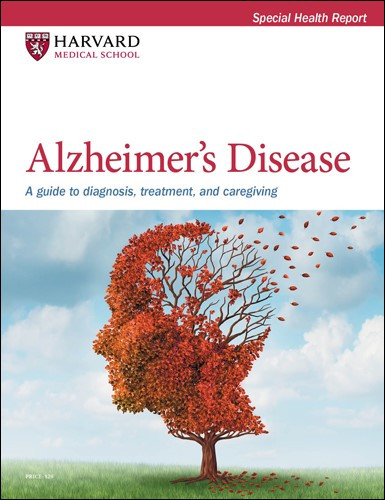Can we fix Alzheimer's genes?
Ask the doctor

Q. Alzheimer's disease runs in my family. Could scientists fix the genes that cause the disease?
A. Your question highlights something important. Even just 30 years ago, we didn't know for sure if any genes increased the risk for Alzheimer's disease, and we surely had no tools for fixing such defective genes. Today, we do know several important genes, and we have gene editing tools, like CRISPR. But we're not yet able to prevent the disease in someone like you. Here's why.
A few cases of Alzheimer's occur in younger adults and are predominantly caused by defects in a handful of genes. It's possible that someday CRISPR could work for this type of Alzheimer's. However, it won't be easy. While CRISPR can easily edit genes in cells in a laboratory dish, using CRISPR to edit the genes of cells deep inside the body of a living person is much harder: attempts to edit genes inside the cells of living animals are just in their infancy.
Most cases of Alzheimer's, however, occur in older adults and do not appear to be caused just by a few defective genes. Indeed, lifestyle — particularly exercise, diet, the amount of high-quality sleep — affects the risk of developing Alzheimer's at least as much as genes.
Also, there is growing evidence that smoldering, chronic, low-grade infections of the brain acquired earlier in life — infections that produce no symptoms — may provoke the development of some cases of Alzheimer's. Some infectious agents, particularly viruses, can quietly infect the brain and can't be eradicated: they remain for the rest of a person's life.
How might this increase the risk of Alzheimer's? One characteristic of Alzheimer's is accumulations (plaques) in the brain of a molecule called amyloid-beta. Everyone's brain has the ability to make amyloid-beta. Unfortunately, amyloid-beta is a "good news–bad news" molecule. It helps fight infections of the brain; that's the good news. The bad news is that amyloid-beta cannot eradicate some infections. When the brain is infect-ed with an agent that cannot be eradicated, amyloid-beta keeps being produced, and keeps trying and failing to eliminate the infection. Over the long term, the buildup of amyloid-beta damages the cells that do the thinking (the neurons).
So, I doubt that gene editing techniques like CRISPR are going to prevent Alzheimer's — at least, for a long time. But I'm more optimistic about medicines that reduce the levels of amyloid-beta and another molecule, tau, that appears important in causing Alzheimer's, based on very recent research. And I'm also optimistic that as we learn more about the role of infections that may increase the risk of Alzheimer's, we may develop treatments and vaccines that target those infections and reduce that risk.
Image: © rommma/Getty Images
About the Author

Anthony L. Komaroff, MD, Editor in Chief, Harvard Health Letter; Editorial Advisory Board Member, Harvard Health Publishing
Disclaimer:
As a service to our readers, Harvard Health Publishing provides access to our library of archived content. Please note the date of last review or update on all articles.
No content on this site, regardless of date, should ever be used as a substitute for direct medical advice from your doctor or other qualified clinician.
















